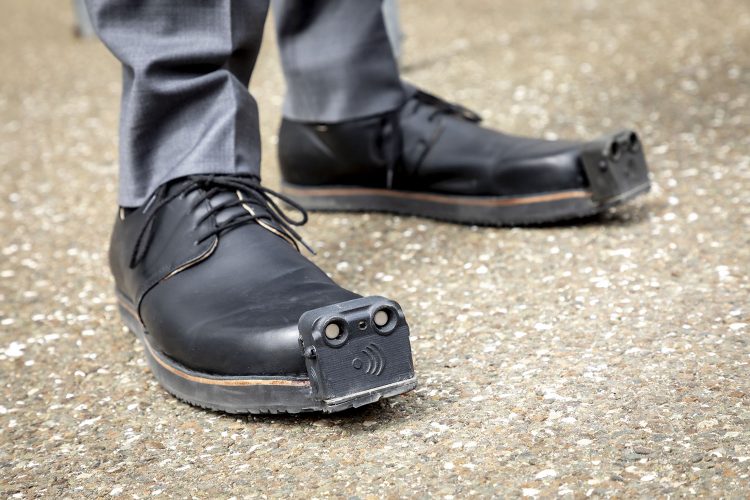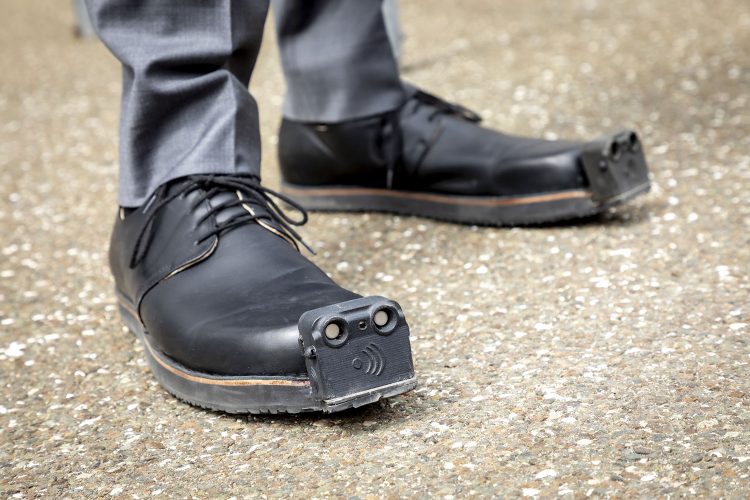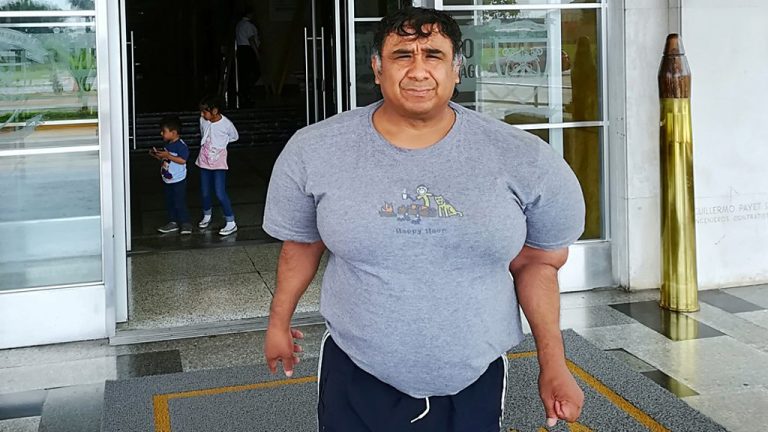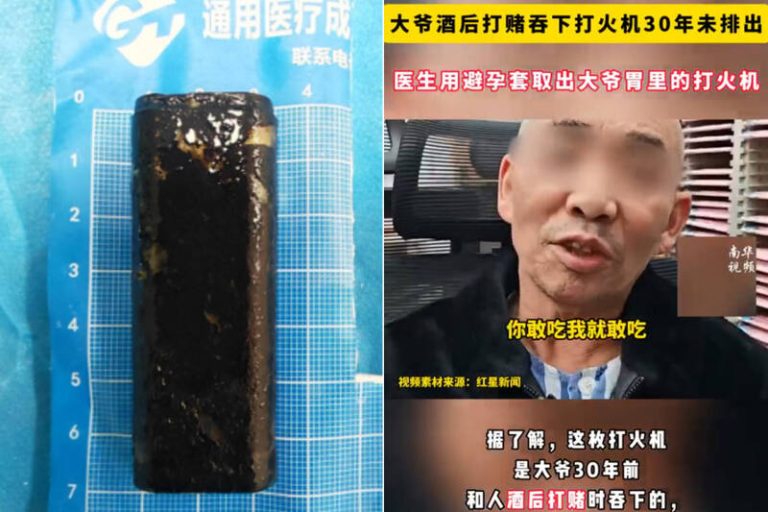Austrian company Tec-Innovation recently unveiled smart shoes that use ultrasonic sensors to help people suffering from blindness of vision impairment to detect obstacles up to four meters away.
Known as InnoMake, the smart shoe aims to become a modern alternative to the decades-old walking stick that millions of people around the world depend on to get around as safely as possible. The currently available model relies on sensors to detect obstacles and warns the wearer via vibration and an audible alert sounded on a Bluetooth-linked smartphone. That sounds impressive enough, but the company is already working on a much more advanced version that incorporates cameras and artificial intelligence to not only detect obstacles but also their nature.

Photo: Tec-Innovation
Tec-Innovation partnered with Austria’s Graz University of Technology to develop of state-of-the-art deep-learning algorithms modeled on neural networks that can analyze the information provided by sensors and cameras incorporated in the InnoMake shoe to determine whether an area is free obstacles and safe to walk on, and also distinguish between various types of obstacles.
“Not only is the warning that I am facing an obstacle relevant, but also the information about what kind of obstacle I am facing. Because it makes a big difference whether it’s a wall, a car or a staircase,” Markus Raffer, one of the founders of Tec-Innovation, told TechXplore.
“Ultrasonic sensors on the toe of the shoe detect obstacles up to four meters away. The wearer is then warned by vibration and/or acoustic signals. This works very well and is already a great help to me personally,” Raffer, himself visually impaired, added.
The current version of the InnoMake shoe is already available for purchase on the Tec-Innovation website, for €3,200 ($3,850) per pair. Even without the camera function, which is still a work in progress, the shoes are an impressive piece of tech that feature advanced modes and algorithms to make using the system as easy as possible.
“You can make adjustments in real time with the button on the back of the device. The range can be adjusted up to 4 meters by briefly pressing the button,” the Tec-Innovation website reads. “You can activate the intelligent mode which automatically pauses the system, e.g. when you are sitting, and you can also use InnoMake as a scanner to obtain information about your environment by means of foot movement.”
The advanced system is comfortably integrated in the front of the shoes, in a waterproof and dustproof case. It is powered by a heavy-duty battery that can last for up to one week, depending on use. The battery can be charged in just three hours, using a USB cable.
The next step for Tec-Innovation is to use the data collected by its system to create a kind of street view navigation map for visually impaired people.
“As it currently stands, only the wearer benefits in each case from the data the shoe collects as he or she walks. It would be much more sustainable if this data could also be made available to other people as a navigation aid,” computer scientist Friedrich Fraundorfer explained.













